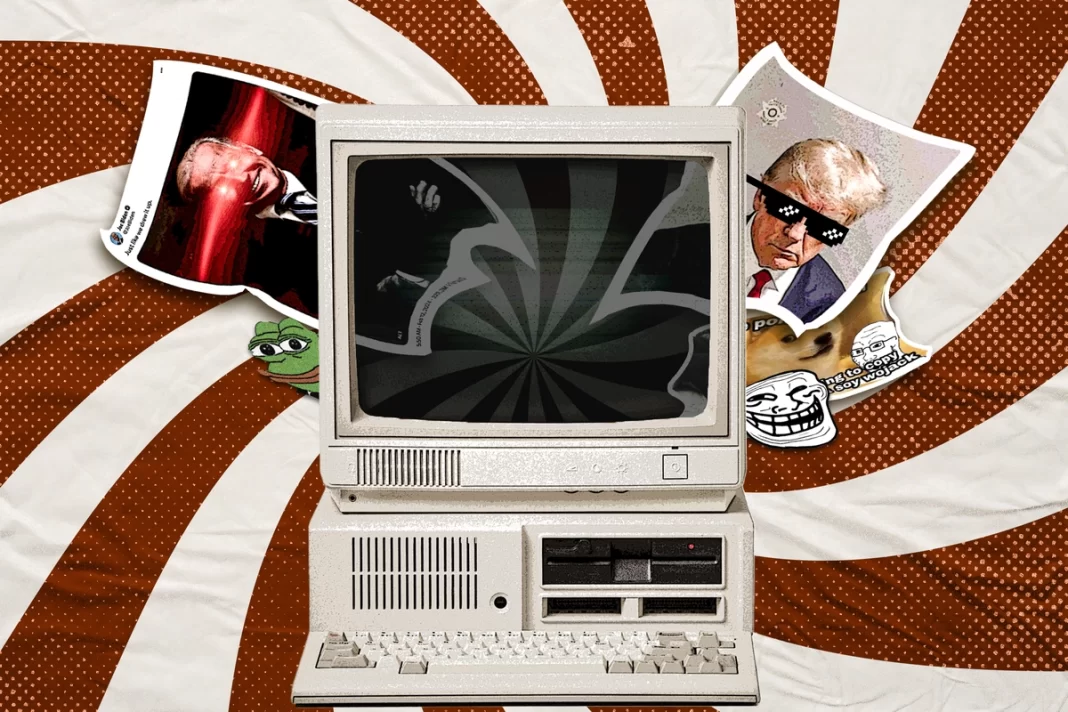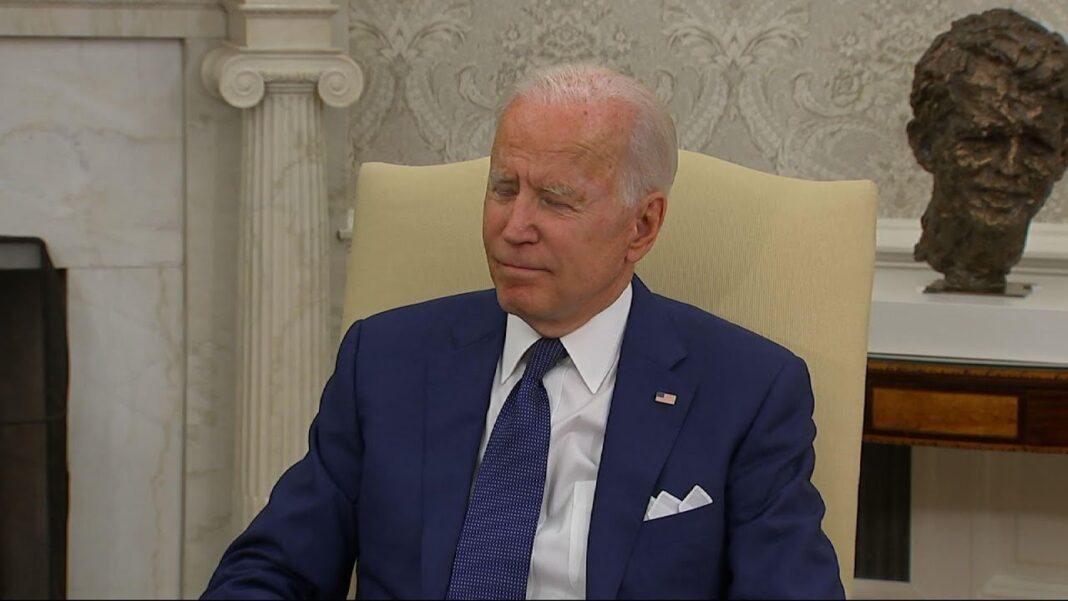
‘If you have a very, very potent meme that ruins a politician’s reputation enough, that could potentially sway an election,’ says meme expert.
Moments after more than 100 million Americans finished watching the Super Bowl, a post on President Joe Biden’s personal X account showed an image of him smiling, while his eyes emanated red beams. The Feb. 11 post read, “Just like we drew it up.”
For the uninitiated, the message seems confusing at best and scary at worst. But the picture wasn’t for them. It was designed for the online supporters and detractors of President Biden, who are already well aware of the so-called Dark Brandon meme.
Dark Brandon is just one of hundreds, if not thousands, of political memes that are subtly shaping the thoughts and perceptions of millions of voters in 2024.
In practice, an internet meme is any image, phrase, video, or other electronic material that people enjoy replicating, sharing, or reinterpreting to share with others.
“If you have a very, very potent meme that ruins a politician’s reputation enough, that could potentially sway an election,” said Don Caldwell, the general manager and editor-in-chief of Know Your Meme.
Evolutionary biologist Richard Dawkins originally coined the term “meme” in his 1976 book “The Selfish Gene.”
There, Mr. Dawkins said a meme is any thing or behavior humans or other animals want to copy. An influential idea, he postulated, continues to live in human minds through the power of memetic cultural transmission.
Author and video blogger Tarl Warwick said he, too, believes memes are as old as human history.
Mr. Warwick, who’s been active in internet culture since 2008 and wrote a book on memes: “Occult Memetics: Reality Manipulation.”
The book centers on what some refer to as “meme magic,” he told The Epoch Times.
This “magic,” Mr. Warwick says, is the ability of Internet users to create, remix, and share seemingly irreverent content in a way that changes the way people think, act, or speak.
Memes are irreducible, he said. They take an abstract concept and make it easy to understand. When human society was largely illiterate, he said, people used universally understood painted or carved pictures to communicate ideas on a massive scale.






